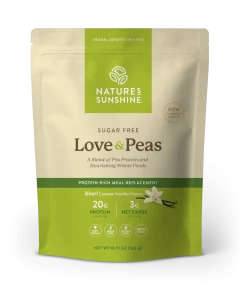Want to Lose Weight? Here’s How Protein Can Be Your Secret Weapon
If you’ve been on social media lately, you’ve probably noticed that protein is everywhere. From high-protein coffee to protein-fortified snacks, it seems like everyone is focused on getting more of this powerful macronutrient. While some of it is marketing hype, there’s solid science backing up one of its most popular benefits: weight loss.
If you’re looking to shed a few pounds, making protein a priority could be one of the most effective strategies you adopt. Here’s a breakdown of how it works and how to do it right.
The Science-Backed Triple Threat of Protein for Weight Loss
Increasing your protein intake isn’t just about building muscle at the gym; it triggers several physiological changes that make losing weight—and keeping it off—easier. Clinical trials have consistently shown that higher-protein diets lead to greater weight loss and fat loss compared to standard-protein diets.
Here’s how protein works its magic:
It Keeps You Fuller, Longer: Protein is the most satiating macronutrient, meaning it helps you feel full and satisfied for a longer period than carbohydrates or fats. It does this by influencing the hormones that control hunger. Higher protein intake boosts the levels of appetite-suppressing hormones (like GLP-1 and PYY) while reducing the hunger hormone ghrelin. This can lead to a natural reduction in your overall calorie consumption because you simply don’t feel as hungry.
It Boosts Your Metabolism: Your body uses energy to digest and metabolize the food you eat. This is called the thermic effect of food (TEF). Protein has a much higher thermic effect (20-30% of its calories) compared to carbs (5-10%) and fats (0-3%). This means your body burns more calories just by processing the protein you eat, giving your metabolism a slight but significant boost throughout the day.
It Protects Your Muscle Mass: When you lose weight, you risk losing not just fat but also valuable muscle mass. This is a problem because muscle is metabolically active, meaning it burns calories even when you’re at rest. A higher protein intake helps preserve this lean muscle mass during weight loss, ensuring that the weight you lose is primarily fat. This is crucial for preventing your metabolism from slowing down, which makes long-term weight maintenance more successful.
How Much Protein Do You Actually Need for Weight Loss?
The standard Recommended Dietary Allowance (RDA) for protein is about 0.8 grams per kilogram of body weight, but this is the minimum amount needed to prevent a deficiency in a sedentary person. For weight management, the science points to a higher intake.
Studies suggest an effective range for weight loss is between 1.2 and 1.6 grams of protein per kilogram of body weight per day. For a 165-pound (75 kg) person, this would be about 90 to 120 grams of protein daily.
Just as important as the total amount is how you distribute it. Since your body can’t store protein for later use, it’s more effective to spread your intake evenly throughout the day. Aim for 15 to 30 grams of protein at each meal to keep your muscles fueled and your hunger at bay.
How to Get Your Protein: Whole Foods and High-Quality Supplements
Not all protein sources are created equal. The best approach is to focus on the “protein package”—the other nutrients like fats, fiber, and vitamins that come with it.
Prioritize Whole Foods: Excellent choices include lean protein sources like fish, skinless chicken or turkey, egg whites, beans, lentils, and low-fat dairy like Greek yogurt. These provide high-quality protein without excess saturated fat. It’s best to be mindful of red meats, which can be high in saturated fat, and try to avoid processed meats like bacon and cold cuts.
Be Wary of Processed Snacks: While convenient, many protein bars and chips are highly processed and can be as unhealthy as candy bars. Whenever possible, opt for whole, unprocessed foods first.
Supplementing with Protein Powder: While getting protein from food is ideal, hitting a higher daily target can be challenging. This is where high-quality protein powders can be a practical and convenient tool. They are a popular option for weight management and can help ensure you meet your daily goals.
Options like whey, casein, or plant-based powders (such as soy or pea) can be easily added to smoothies or shakes, offering a quick protein boost when you’re short on time.
Is Too Much Protein Unsafe?
For most healthy individuals, a high-protein diet for weight loss is considered safe. However, if you have a pre-existing disease, it is crucial to consult your doctor before significantly increasing your protein intake.
The Takeaway
Increasing your protein intake is a powerful, evidence-based strategy to aid your weight loss journey. By promoting fullness, boosting your metabolism, and preserving muscle, it helps you lose fat more effectively and sustainably. Focus on hitting your protein goals with lean, whole-food sources and, when needed, high-quality supplements. Spreading your intake throughout the day will help you achieve your goals.







